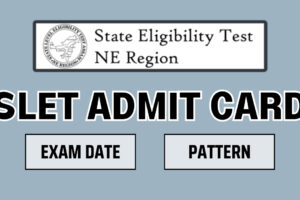How To Make Career In Artificial Intelligence?
Introduction
Artificial Intelligence (AI) refers to the simulation of human intelligence in computers or machines that can perform tasks typically requiring human intelligence. This includes tasks such as learning, reasoning, problem-solving, understanding natural language, and even perception. AI systems are designed to mimic human cognitive functions and adapt to new information and situations.
Key components and concepts of AI include:
- Machine Learning (ML): Machine learning is a subset of AI that focuses on developing algorithms and models that enable machines to learn from data. Instead of being explicitly programmed for a specific task, ML systems use data to improve their performance and make predictions or decisions.
- Neural Networks: Neural networks are a type of machine learning model inspired by the structure and functioning of the human brain. They are used in deep learning and are particularly effective in tasks like image and speech recognition.
- Natural Language Processing (NLP): NLP is a branch of AI that deals with the interaction between computers and human language. It enables machines to understand, interpret, and generate human language, which is essential for applications like chatbots, language translation, and sentiment analysis.
- Computer Vision: Computer vision is the field of AI that focuses on enabling machines to interpret and understand visual information from the world, including images and videos. It’s used in applications like facial recognition, object detection, and autonomous vehicles.
- Robotics: AI plays a crucial role in robotics by enabling robots to perceive their environment, make decisions, and perform tasks autonomously. This is used in industries like manufacturing, healthcare, and space exploration.
- Expert Systems: Expert systems are AI programs that mimic the decision-making abilities of a human expert in a specific domain. They use a knowledge base and rules to provide recommendations or make decisions.
- Reinforcement Learning: In reinforcement learning, AI agents learn through trial and error. They receive feedback in the form of rewards or penalties based on their actions, allowing them to improve their decision-making over time. It’s often used in gaming and autonomous systems.Why Choose a Career in Artificial Intelligence ?:Choosing a career in Artificial Intelligence (AI) can be an excellent decision for several compelling reasons:
- High Demand: AI is in high demand across industries. As businesses increasingly rely on data-driven decision-making, AI professionals are sought after to develop, implement, and maintain AI systems.
- Job Security: Due to the growing dependence on AI technologies, AI professionals enjoy job security. Companies are willing to invest in AI talent to remain competitive and innovative.
- Competitive Salaries: AI careers are known for offering competitive salaries. Professionals with AI expertise often earn higher-than-average incomes.
- Versatility: AI skills are transferable across industries. AI professionals can work in healthcare, finance, retail, automotive, and many other sectors.
- Innovation: AI professionals are at the forefront of technological innovation. They have the opportunity to work on cutting-edge projects and shape the future of technology.
- Solving Complex Problems: AI professionals work on solving complex real-world problems. Whether it’s developing self-driving cars, healthcare diagnostics, or natural language understanding, AI provides opportunities to make a significant impact.
- Learning Opportunities: AI is a dynamic field that constantly evolves. AI professionals have the chance to continue learning and staying up-to-date with the latest advancements.
- Global Opportunities: AI is a global field, offering opportunities to work with international teams and collaborate on diverse projects.
- Fulfilling Work: For those passionate about technology and the potential to make a positive impact on society, AI careers can be personally fulfilling.
- Career Growth: AI professionals often have clear paths for career growth, whether it’s moving into leadership roles, becoming AI researchers, or starting their own AI-related businesses.
Overall, a career in AI can be rewarding both professionally and financially, and it allows individuals to be part of an exciting and rapidly advancing field that is shaping the future.
Educational Requirements:
Entering the field of Artificial Intelligence (AI) requires a solid educational foundation and a combination of skills. Here are the key educational pathways you can consider:
- Bachelor’s Degree in Computer Science or Related Fields:
- Many AI professionals begin their journey with a bachelor’s degree in computer science, computer engineering, or a related field. These programs provide fundamental knowledge in programming, algorithms, data structures, and mathematics.
- Bachelor’s Degree in Data Science:
- Data science programs are also a suitable choice for those interested in AI, as they cover data analysis, statistics, and machine learning. These skills are highly relevant in AI development.
- Bachelor’s Degree in Mathematics or Statistics:
- Strong mathematical and statistical foundations are essential for AI. Degrees in mathematics or statistics can be a solid starting point for AI careers, especially if coupled with programming skills.
- Bachelor’s Degree in Electrical Engineering or Robotics:
- For those interested in AI in the context of robotics or automation, degrees in electrical engineering or robotics can be valuable.
- Master’s Degree in Artificial Intelligence or Machine Learning:
- Pursuing a master’s degree with a specific focus on AI or machine learning can provide advanced knowledge and specialized training. Look for programs that offer coursework in deep learning, natural language processing, and computer vision.
- Master’s Degree in Data Science:
- Data science master’s programs often include machine learning and AI courses. They are suitable for those who want a broader skill set encompassing data analysis and AI.
- Ph.D. in Artificial Intelligence:
- A Ph.D. in AI is necessary for those interested in research and academia. It can also open up opportunities for advanced roles in AI development.
- Online Courses and Certifications:
- Many universities and online platforms offer AI-related courses and certifications. These are accessible options for individuals looking to upskill or gain specialized knowledge without committing to a full degree program.
- Bootcamps and Coding Schools:
- Coding bootcamps and AI-focused coding schools provide intensive, short-term training programs that can equip you with practical AI skills. These are ideal for career changers or those seeking a more accelerated learning path.
- Self-Study:
- Self-study is a viable option, especially if you have strong discipline and motivation. Utilize online resources, textbooks, and open-source AI libraries to learn and practice AI skills.
Remember that AI is a multidisciplinary field, so it’s valuable to combine your educational background with skills in programming (Python is particularly important), machine learning, deep learning, and domain-specific knowledge. Additionally, participating in AI projects, internships, or research opportunities can help you gain practical experience and enhance your portfolio, regardless of your educational pathway.
Key Skills and Qualities:
To have a successful career in Artificial Intelligence (AI), you need a combination of technical skills and personal qualities. Here are the key skills and qualities required:
Technical Skills:
- Programming Languages: Proficiency in programming languages is essential. Python is the most widely used language in AI for tasks like data manipulation, machine learning, and deep learning. Knowledge of languages like R and Julia can also be beneficial.
- Machine Learning and Deep Learning: Understand the principles and algorithms of machine learning and deep learning. Familiarize yourself with popular libraries such as TensorFlow and PyTorch.
- Data Manipulation and Analysis: Be skilled in data preprocessing, cleaning, and analysis. Tools like Pandas and NumPy are commonly used for this purpose.
- Mathematics: Strong mathematical foundations are crucial. You should have a good grasp of linear algebra, calculus, probability, and statistics as these concepts underpin many AI algorithms.
- Data Modeling: Learn how to build, evaluate, and optimize machine learning models. This includes regression, classification, clustering, and neural networks.
- Natural Language Processing (NLP): If you are interested in text or language-related applications, study NLP techniques and libraries like NLTK and spaCy.
- Computer Vision: For tasks involving images and videos, acquire knowledge in computer vision techniques and libraries like OpenCV.
- Reinforcement Learning: Understanding reinforcement learning algorithms is crucial for AI applications in robotics and game development.
- Big Data and Distributed Computing: Familiarity with big data frameworks like Apache Hadoop and Spark can be valuable when dealing with large datasets.
- Version Control: Proficiency in using version control systems like Git for collaborative coding and project management.
Personal Qualities:
- Curiosity: AI is a rapidly evolving field. Being curious and eager to learn about new developments is essential.
- Problem-Solving Skills: AI professionals need to solve complex, real-world problems using AI techniques.
- Adaptability: AI technologies and tools change frequently. Being adaptable and open to new approaches is crucial.
- Critical Thinking: The ability to think critically and analytically helps in designing effective AI solutions.
- Creativity: Creative thinking can lead to innovative AI solutions and applications.
- Communication Skills: Effective communication is necessary to convey your ideas, results, and solutions to non-technical stakeholders.
- Teamwork: AI projects often involve interdisciplinary teams. Being able to collaborate with experts from different domains is important.
- Ethical Awareness: AI professionals should consider the ethical implications of their work and prioritize responsible AI development.
- Persistence: AI projects can be challenging and may require persistence when troubleshooting and optimizing models.
- Project Management: Basic project management skills can help you meet deadlines and deliver AI solutions effectively.
Remember that AI is a broad field with various sub-disciplines, so you may need to tailor your skill set and qualities depending on your specific area of interest within AI, whether it’s natural language processing, computer vision, robotics, or another specialization. Continuously improving and expanding your skills is a key to long-term success in this dynamic field.
Building a Strong Foundation:
Building a strong foundation for a career in Artificial Intelligence (AI) involves a combination of education, hands-on experience, and continuous learning. Here’s a step-by-step guide to help you establish a solid base:
- Educational Foundation:
- Choose the Right Educational Path: Begin with a bachelor’s degree in a related field such as computer science, data science, mathematics, or electrical engineering. Ensure that your chosen program covers fundamental concepts in programming, mathematics, and statistics.
- Advanced Degrees (Optional): Consider pursuing a master’s or Ph.D. in AI or a related field to gain specialized knowledge and research experience. While not always necessary, advanced degrees can open doors to more challenging and research-oriented AI roles.
- Master Essential Subjects:
- Mathematics: Develop a strong understanding of key mathematical concepts like linear algebra, calculus, probability, and statistics. These are the foundations of many AI algorithms.
- Programming: Become proficient in programming languages commonly used in AI, particularly Python. Learn how to code, debug, and optimize your programs.
- Machine Learning and Deep Learning: Study machine learning algorithms, deep neural networks, and reinforcement learning. Understand how they work, when to use them, and how to implement them.
- Data Manipulation and Analysis: Learn how to collect, clean, and preprocess data for AI tasks using libraries like Pandas and NumPy.
- AI Tools and Libraries: Familiarize yourself with popular AI libraries such as TensorFlow, PyTorch, scikit-learn, and Keras.
- Hands-on Experience:
- Personal Projects: Undertake personal AI projects to apply your knowledge practically. Start with simple projects and gradually tackle more complex challenges. GitHub is a great platform for sharing your work and building a portfolio.
- Internships and Research: Seek internships or research opportunities in AI-related roles. Practical experience in a real-world environment is invaluable.
- Kaggle Competitions: Participate in data science and machine learning competitions on platforms like Kaggle. These challenges allow you to work on real datasets and solve problems.
- Online Courses and MOOCs:
- Enroll in online courses and Massive Open Online Courses (MOOCs) offered by institutions like Coursera, edX, and Udacity. These platforms offer AI-focused courses from top universities and organizations.
- Read Widely:
- Stay updated with AI research papers, books, and blogs. Follow AI research conferences like NeurIPS, CVPR, and ICML. This keeps you informed about the latest advancements in the field.
- Join AI Communities:
- Participate in AI forums, online communities, and meetups. Platforms like Stack Overflow, Reddit (r/MachineLearning), and AI-specific forums can help you connect with peers and experts.
- Network:
- Attend AI conferences, workshops, and seminars in your area. Networking with professionals and researchers can lead to valuable insights and job opportunities.
- Certifications:
- Consider earning AI-related certifications, such as those offered by Coursera, edX, or Google AI. These certifications can demonstrate your expertise to potential employers.
- Continuous Learning:
- AI is a fast-evolving field, so commit to lifelong learning. Stay open to new techniques, frameworks, and technologies, and continue to build your skills.
- Build a Portfolio:
- Showcase your AI projects and contributions on your personal website or portfolio. A strong portfolio can significantly boost your job prospects.
Remember that building a strong foundation in AI is a gradual process, and it’s essential to remain patient, persistent, and dedicated to your learning journey. As you gain more experience and knowledge, you’ll be well-prepared for a successful AI career.
Networking and Professional Development:
Networking and professional development are crucial aspects of building a successful career in Artificial Intelligence (AI). They can help you stay updated with industry trends, collaborate on projects, and open doors to job opportunities. Here are some strategies for networking and professional development in AI:
- Attend AI Conferences and Workshops:
- Participate in AI conferences and workshops like NeurIPS, CVPR, ICML, AAAI, and ICLR. These events provide opportunities to learn from experts, present your research, and network with peers.
- Join Online AI Communities:
- Participate in online AI communities and forums like Stack Overflow, Reddit (r/MachineLearning), and specialized AI forums. Engage in discussions, ask questions, and share your knowledge.
- AI Meetup Groups:
- Look for AI-related meetup groups in your city or region. These events often feature talks, presentations, and networking opportunities.
- LinkedIn and GitHub:
- Maintain an active presence on LinkedIn to connect with AI professionals and showcase your skills and achievements. GitHub is an excellent platform to share your AI projects and collaborate with others.
- AI Hackathons and Competitions:
- Participate in AI hackathons and competitions like Kaggle. These events offer a chance to work on real-world AI problems, collaborate with teammates, and demonstrate your skills.
- Online Courses and Webinars:
- Enroll in online AI courses and webinars. Many organizations and universities offer free or paid webinars that cover the latest AI research and applications.
- AI Research Groups and Labs:
- Explore opportunities to join AI research groups or labs at universities or research institutions. These environments provide access to cutting-edge research and collaboration opportunities.
- AI Mentorship:
- Seek mentorship from experienced AI professionals or professors. Mentors can offer guidance, career advice, and support in navigating the AI landscape.
- AI LinkedIn Groups:
- Join AI-related LinkedIn groups to engage in discussions, share insights, and connect with professionals in the field.
- AI Books and Journals:
- Read AI books and research journals to stay updated with the latest developments. Subscribe to AI-focused publications and blogs for regular updates.
- AI Research:
- Consider pursuing research projects or contributing to open-source AI projects. This can enhance your skills, build your reputation, and expand your network.
- AI Workshops and Bootcamps:
- Attend AI workshops and bootcamps to gain hands-on experience and interact with instructors and peers.
- Collaborate on AI Projects:
- Collaborate with peers on AI projects, both personal and professional. Collaborative efforts can lead to innovative solutions and expand your network.
- Industry Associations:
- Join industry associations related to AI, such as the Association for Computing Machinery (ACM) or the IEEE Computer Society, to access resources and network with professionals.
- AI Podcasts and Webinars:
- Listen to AI-related podcasts and attend webinars featuring industry experts. These platforms offer insights into AI trends and developments.
Networking and professional development should be ongoing processes throughout your AI career. By actively engaging with the AI community and continuously improving your skills, you’ll be well-positioned to advance in this dynamic field.
Job Opportunities in India:
India’s AI landscape offers a wide range of job opportunities across various industries. As AI continues to grow and evolve, so does the demand for AI professionals. Here are some of the prominent job opportunities in India’s AI sector:
- Machine Learning Engineer:
- Machine learning engineers design and implement machine learning models and algorithms. They work on tasks like predictive modeling, recommendation systems, and natural language processing.
- Data Scientist:
- Data scientists analyze large datasets to extract meaningful insights. They use statistical techniques, machine learning, and data visualization to solve complex problems in various domains.
- Artificial Intelligence Researcher:
- AI researchers focus on advancing the field by conducting cutting-edge research. They work on innovative projects related to machine learning, computer vision, and natural language processing.
- Computer Vision Engineer:
- Computer vision engineers specialize in developing AI systems that can interpret and process visual information from the world, such as image recognition and object detection.
- Natural Language Processing (NLP) Engineer:
- NLP engineers work on applications that involve understanding and processing human language, such as chatbots, sentiment analysis, and language translation.
- AI Software Developer:
- AI software developers create software applications that incorporate AI components, such as recommendation engines or AI-powered chatbots.
- AI Research Scientist:
- AI research scientists conduct fundamental research in AI, exploring new algorithms, models, and techniques to advance the field.
- AI Product Manager:
- AI product managers oversee the development and launch of AI-powered products and services. They bridge the gap between technical teams and business objectives.
- AI Ethicist:
- AI ethicists focus on the ethical implications of AI technologies. They ensure that AI systems are developed and used in a responsible and unbiased manner.
- AI Consultant:
- AI consultants work with organizations to identify opportunities for AI implementation, develop AI strategies, and provide guidance on AI adoption.
- AI Trainer and Educator:
- AI trainers and educators teach AI concepts, techniques, and technologies through workshops, courses, and educational programs.
- AI Hardware Engineer:
- AI hardware engineers design and develop specialized hardware components, such as GPUs and TPUs, optimized for AI workloads.
- AI Startup Founder:
- India has a thriving startup ecosystem, and many entrepreneurs are establishing AI startups to tackle various industry challenges.
- AI Business Analyst:
- AI business analysts analyze market trends and industry needs to identify AI opportunities and develop business strategies.
- AI Quality Assurance Engineer:
- Quality assurance engineers in AI ensure that AI systems are tested thoroughly and meet performance and accuracy standards.
Job opportunities in India’s AI landscape span across sectors such as healthcare, finance, e-commerce, manufacturing, and more. As AI continues to revolutionize industries, the demand for AI professionals is expected to grow, making it an exciting and promising career path in India.
Preparing for Job Interviews:
Preparing for AI-related job interviews requires a combination of technical knowledge, problem-solving skills, and effective communication. Here’s a step-by-step guide to help you prepare:
1. Review the Basics:
- Revisit fundamental concepts in machine learning, deep learning, and AI algorithms.
- Brush up on linear algebra, calculus, probability, and statistics as these are often tested.
2. Study Specific Algorithms and Models:
- Understand popular machine learning algorithms (e.g., regression, decision trees, support vector machines) and deep learning models (e.g., neural networks, CNNs, RNNs).
- Be prepared to explain how they work and their use cases.
3. Code Practice:
- Practice coding AI-related problems on platforms like LeetCode, HackerRank, and Kaggle.
- Review common programming languages used in AI, such as Python, and be comfortable with coding interviews.
4. Projects and Portfolio:
- Showcase your AI projects in a portfolio, especially those relevant to the job you’re applying for.
- Be ready to discuss your project experiences, including challenges faced and how you overcame them.
5. Data Manipulation and Preprocessing:
- Understand data preprocessing techniques like normalization, one-hot encoding, and feature scaling.
- Be able to clean and preprocess data efficiently.
6. Libraries and Frameworks:
- Familiarize yourself with AI libraries and frameworks such as TensorFlow, PyTorch, scikit-learn, and Keras.
- Be able to navigate these libraries effectively.
7. Deep Learning Architectures:
- Learn about common deep learning architectures and their applications, including convolutional neural networks (CNNs) and recurrent neural networks (RNNs).
8. Interview Questions:
- Review common AI interview questions, both technical and behavioral. Many AI-related interview questions focus on problem-solving and critical thinking.
9. Practice with Mock Interviews:
- Conduct mock interviews with peers, mentors, or through online platforms to simulate the interview experience.
- Record and review your practice sessions to identify areas for improvement.
10. Solve Real-World Problems: – Study AI case studies and real-world problems in the domain of the job you’re applying for. – Practice explaining how you would approach and solve these problems.
11. Research the Company: – Research the company’s AI projects, products, and initiatives. Understand their specific needs and how your skills align with them.
12. Behavioral Questions: – Prepare for behavioral questions related to teamwork, leadership, and overcoming challenges. – Use the STAR (Situation, Task, Action, Result) method to structure your answers.
13. Stay Updated: – Keep up with the latest developments in AI by reading research papers and following industry news.
14. Ask Questions: – Prepare thoughtful questions to ask the interviewer. This demonstrates your interest in the role and company.
15. Soft Skills: – Practice effective communication and problem-solving skills, as these are crucial in AI roles.
16. Confidence and Positive Attitude: – Approach the interview with confidence and a positive attitude. Believe in your abilities and stay calm under pressure.
Remember that AI interviews can vary depending on the company and role, so adapt your preparation to the specific job requirements. Tailor your responses to showcase your technical skills, experience, and enthusiasm for the role. With thorough preparation and practice, you’ll be well-equipped to excel in AI-related job interviews.
Conclusion:
the key points have discussed throughout the blog post. We are encouraging the readers to take the first step toward pursuing a career in artificial intelligence in India. Reiterating the potential benefits of working in this field, both professionally and personally, and expressing confidence in their ability to succeed.
:



